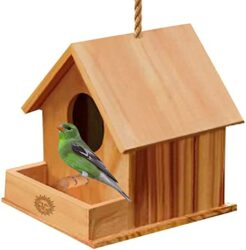Mosquitoes Facts, As the weather warms up, mosquitoes become a major annoyance for many people. They not only leave itchy bites, but they also carry diseases such as the West Nile virus, Zika virus, and malaria.
While there are many ways to control mosquito populations, one of the most effective is through the use of insecticides. However, knowing when to spray mosquitoes is just as important as knowing what to spray.
In this article, we will discuss the best times to spray mosquitoes and the factors that influence these times.
Understanding Mosquitoes Facts
Before discussing when to spray mosquitoes, it is important to understand their behavior. Mosquitoes are most active during the early morning and late afternoon/evening hours, and they tend to rest during the heat of the day.
Female mosquitoes are the ones that bite, and they do so to obtain the blood they need to produce eggs. Mosquitoes breed in standing water, so areas with stagnant water are prime breeding grounds.
Factors that Influence Mosquito Populations
There are several factors that influence mosquito populations, and these factors can help determine when to spray for mosquitoes. These include:
Temperature
Mosquitoes thrive in warm temperatures, so populations tend to be highest during the summer months.
Rainfall
Mosquitoes need water to breed, so areas with heavy rainfall or flooding are likely to have higher populations.
Humidity
Mosquitoes prefer humid environments, so areas with high humidity may have higher populations.
Vegetation
Mosquitoes tend to rest in shaded areas with vegetation, so areas with dense foliage may have higher populations.
Wind
Mosquitoes are not strong fliers, so areas with high winds may have lower populations.
Best Times to Spray for Mosquitoes – Mosquitoes Facts
Based on the factors that influence mosquito populations, the best times to spray for mosquitoes are:
Early Morning
Spraying in the early morning hours, before temperatures rise and mosquitoes become active, can be effective at reducing populations. However, it is important to avoid spraying during times of heavy dew or fog, as this can reduce the effectiveness of the insecticide.
Late Afternoon/Evening
Spraying in the late afternoon or evening hours, when temperatures are starting to cool and mosquitoes are becoming more active, can also be effective. However, it is important to avoid spraying during times of heavy wind, as this can cause the insecticide to drift and reduce its effectiveness.
After Rainfall
After heavy rainfall or flooding, mosquito populations may increase significantly. Spraying during this time can be effective at reducing populations before they have a chance to breed.
Before Outdoor Activities
If you are planning an outdoor event or activity, it can be effective to spray for mosquitoes a few hours beforehand. This will reduce the number of mosquitoes present and make the event more enjoyable for everyone.
Choosing the Right Insecticide – Mosquitoes Facts
When spraying for mosquitoes, it is important to choose the right insecticide. Look for products that are specifically designed for mosquitoes and contain active ingredients such as pyrethroids or organophosphates.
Always follow the instructions on the label, and avoid spraying in areas where children or pets may come into contact with the insecticide.
Conclusion
Spraying mosquitoes can be an effective way to reduce populations and make outdoor activities more enjoyable. The best times to spray for mosquitoes are in the early morning or late afternoon/evening hours, after rainfall, or before outdoor activities.
By understanding mosquito behavior and the factors that influence their populations, you can choose the right time to spray and ensure the greatest effectiveness.
FAQs
Is it safe to spray mosquitoes around children and pets?
- It is important to choose insecticides that are safe for use around children and pets and to follow the instructions on the label carefully. It is also a good idea to keep children and pets indoors during and immediately after spraying.
-
How often should I spray for mosquitoes?
- The frequency of mosquito spraying depends on several factors, such as the severity of the mosquito problem and the type of insecticide used. In general, spraying every 2-3 weeks during mosquito season can be effective.
-
Are there any natural alternatives to insecticides for controlling mosquitoes?
- Yes, there are several natural alternatives to insecticides for controlling mosquitoes, such as using citronella candles, mosquito-repelling plants, and mosquito traps. However, these methods may not be as effective as insecticides.
-
Can mosquito spraying harm other insects?
- Mosquito spraying can harm other insects, such as bees and butterflies if the insecticide is not used properly. It is important to choose an insecticide that is specifically designed for mosquitoes and to avoid spraying in areas with high bee populations.
-
What other measures can I take to reduce mosquito populations?
- In addition to spraying for mosquitoes, there are several other measures you can take to reduce populations, such as eliminating standing water, using mosquito nets or screens, and wearing protective clothing. It is also important to keep your lawn and yard well-maintained to reduce areas where mosquitoes can rest and breed.


